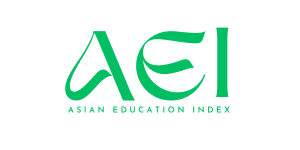Lecturers in Adopting Digital Literacy towards Innovation Technological Change
Keywords:
Digital literacy, disrupt old technology, innovate technology, technological changeAbstract
In adopting digital literacy, lecturers must change teaching from traditional teaching to online teaching. Online teaching uses digital technology where technological changes are accompanied by technological innovations that must develop. Thus, lecturers must master new skills using information technology and the Internet. The problem that occurs is the difficulty of lecturers in changing teaching habits in the classroom to the use of digital technology. Thus the productivity and efficiency of education have problems with there is no balance between student test scores that continue to decline. One of the factors is that lecturers are unable and unskilled in adopting digital technology literacy, such as the ability to analyze, take learning resources that are not credible, and the limited internet network in Indonesia. Lecturers need to adopt digital technology to have the knowledge, abilities, and skills of digital technology. This research design was a quantitative and qualitative method, giving questionnaires to 87 lecturers in Banten, Indonesia. The result showed that lecturers could teach using digital literacy on the Internet and innovate the new technology in the learning process. The research purpose is to increase the lecturers' qualification for the 21st-century learning process and to deliver the contents and engage students and lecturer's learning process innovatively and disrupt the old technology
Downloads
Published
Issue
Section
License

This work is licensed under a Creative Commons Attribution-NonCommercial 4.0 International License.
User Rights
Under the Creative Commons Attribution-NonCommercial 4.0 International (CC-BY-NC), the author (s) and users are free to share (copy, distribute and transmit the contribution).
Rights of Authors
Authors retain the following rights:
1. Copyright and other proprietary rights relating to the article, such as patent rights,
2. the right to use the substance of the article in future works, including lectures and books,
3. the right to reproduce the article for own purposes, provided the copies are not offered for sale,
4. the right to self-archive the article.















